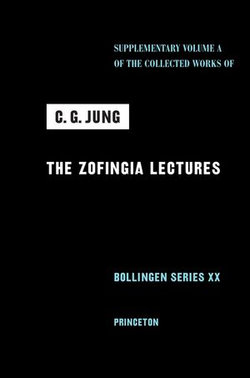The authoritative edition of the revealing lectures Jung delivered during medical school
In spring 1895, shortly after he had enrolled in the medical school of Basel University, C. G. Jung became a member of the Zofingia Society, a Swiss student fraternity. The five lectures he gave to his Zofingia colleagues during the following four years represent, as Ernst Benz has written, “a valuable clarification of the suppositions of Jung’s scientific thought and of the bases of his religious views.”
Confirming that Jung’s concern with Freudian psychoanalysis was a diversion in his intellectual development, these lectures, published here for the first time, anticipate his mature interest in empirical psychology, spiritualism, the occult, and the metaphysical. The topics include aspects of Christianity, with a critique of the thought of the theologian Albrecht Ritschl; the limits of exact science; and rational and empirical psychology. The annotation for the volume is by William McGuire and Jan van Heurck.




Share This eBook: